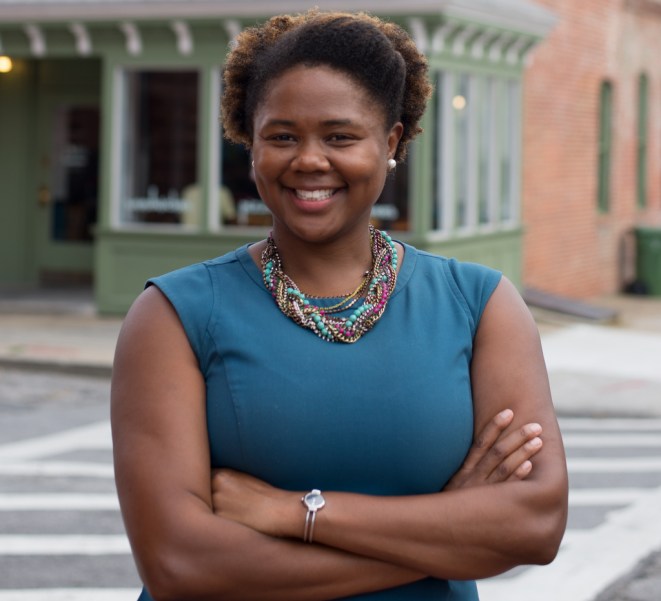
By Del. Melissa Wells
Special to AFRO
The time to develop a new model for business and safe delivery of services is now.
The governor has received considerable pressure to move as quickly as possible to open Maryland for business as usual. When the governor established a statewide stay-at-home order, this signaled to many that he was making an effort to put people and public health before business. Unfortunately, on May 15 at 5 p.m., Governor Hogan ended what health experts, scientists and any rational person believed was the right decision. He brought the State of Maryland at least one step closer to opening business and caving to the demands of the loudest protestors.

The Governor’s confidence in the roll-out of phase-one was based on assessments done by the Maryland Department of Health which tracked data surrounding hospitalizations. While hospitalization has plateaued, and at times, made dedicated decreases over the last few weeks, the Maryland Department of Health data offers receipts that make it very clear now is not the time to let up on strict social distancing and restrictions on non-essential activities. The numbers simply don’t lie.
Data from the last month is extremely sobering, specifically over April 18 to May 18. The number of confirmed COVID cases tripled with an average daily increase of 905 cases. Over this same period, COVID confirmed deaths increased by an average of 45 per day and comprise 69 percent of all related deaths thus far for the state. Furthermore, preliminary data by race and zip code show that this public health crisis ravages Black Marylanders and underlying health disparities. Black Marylanders are disproportionately impacted by the COVID pandemic. While Blacks make up 30 percent of the Maryland population, they account for 40 percent of COVID confirmed cases and 43 percent of deaths, for which data is available. Yet again, Black communities are disproportionately the hardest hit across the state and stand to be further exposed to COVID, hospitalization and related death as a result of the governor’s Executive Order.
While we have made gains, especially at the county and city levels, in increasing testing and providing care since April, we are still on the front end of understanding and successfully using data to manage this pandemic. Moreover, the actual confirmed case counts could be much higher, but the lack of data could downplay the full impact that COVID has on our state, especially the hardest hit communities.
While Governor Hogan ran full speed ahead toward a phase-one opening, he left the largest counties and municipals in the dust. He tried to offer some consolation by “empowering” them to phase their opening as they see fit. However, this will prove to be a burden. It is only a matter of time before we face a budgetary showdown, but the Governor, like always, has the upper hand. He controls the purse strings for most of our state’s vital services.
All of this to say, being a leader requires making tough decisions that, at times, constituents, friends, allies and sponsors will harshly criticize. Some people may even take to the streets to protest and cause mayhem. The true mark of a leader is when a person leads in consultation of fact, with regard for the reality of the world in which we all live, with compassion and understanding of the diversity of every human experience. Governor Hogan is not exemplifying these qualities currently.
Now, we must do the hard work of responsibly adapting our economy and services to thrive in this brave new world. Now is the time for rigorous and evidence-based assessment, to thoughtfully determine what is needed next. I have learned that the best thing we can do for our economy is to create predictability and consistency.
Our state has yet to put even half that amount of intention and discourse into the conversation of reopening, let alone recovery. We must accurately assess, plan and act if we are to stabilize our economy.
The conversation of reopening must focus first on recovery for the hundreds of thousands of struggling Marylanders rather than jump-starting business as usual. We must also ensure that we have a plan to get the 300,000 and counting unemployed Marylanders on a pathway to work. We must ensure that our safety net is equipped to deliver unemployment insurance, access to online SNAP and securing stable housing by offering relief for renters and homeowners. We face a possible second wave and we have yet to have guidance on equitable delivery of distance learning, or updates on how our children’s educational achievement has fared thus far. To continue business, as usual, is to stagnate. If we stagnate, thousands of more people will die. Do not trust soft openings.
Delegate Melissa Wells represents the 40th District in Baltimore City.
The opinions on this page are those of the writers and not necessarily those of the AFRO. Send letters to The Afro-American • 1531 S. Edgewood St. Baltimore, MD 21227 or fax to 1-877-570-9297 or e-mail to editor@afro.com

